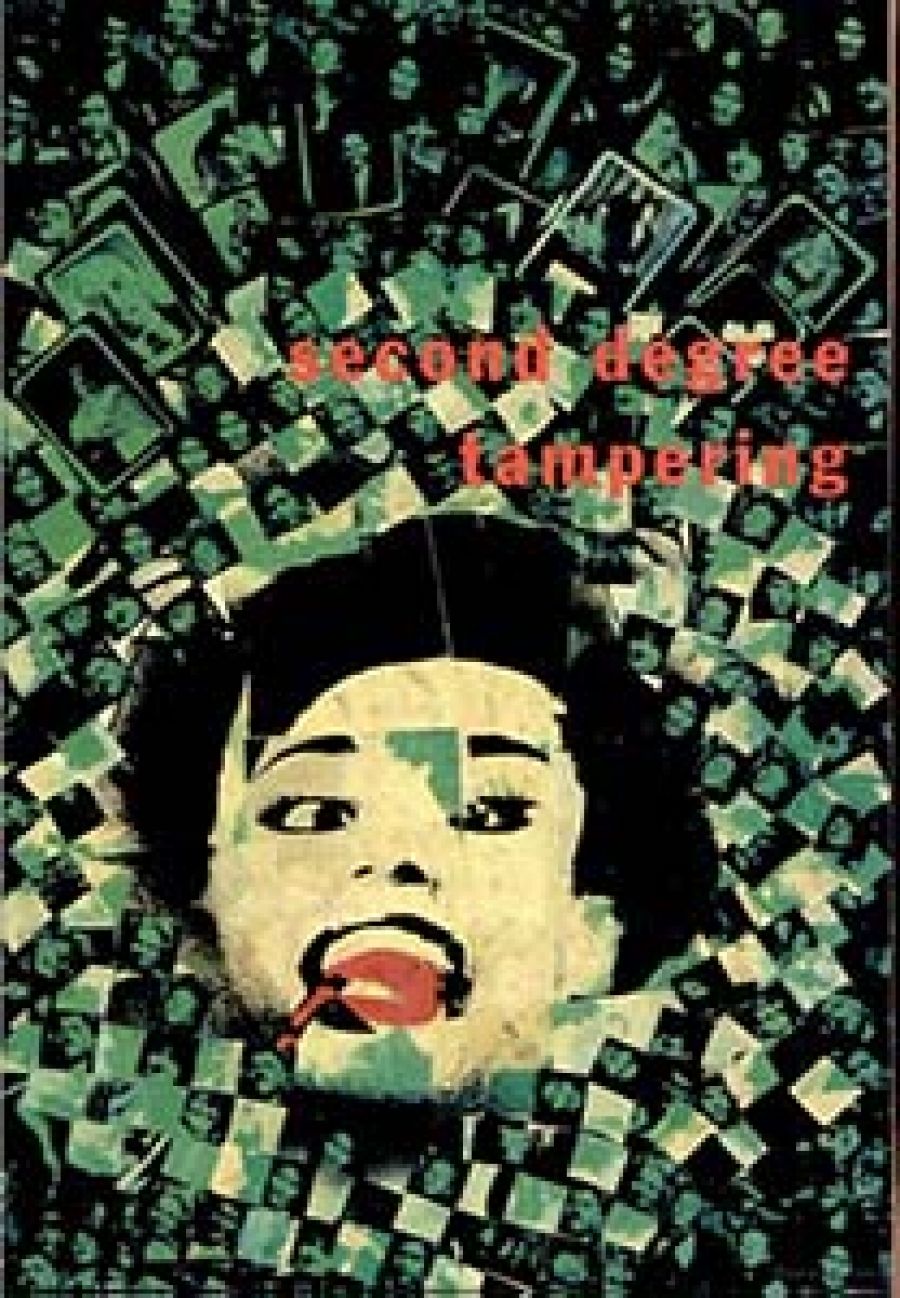
- Free Article: No
- Contents Category: Feminism
- Review Article: Yes
- Online Only: No
- Custom Highlight Text:
This is a powerful and accomplished anthology. The fiction, poems, and autobiographies of thirty-seven women writers offer a collection where the individual pieces coalesce into much more than the sum of the parts.
The editors have chosen writing from a field of over 350 manuscripts, seeking that which challenges and revises dominant versions of national identity.
- Book 1 Title: second degree tampering
- Book 1 Subtitle: Writing by women
- Book 1 Biblio: Sybylla Feminist Press, 200 pp
The writers share various cultural origins and Sybylla chooses to call their work ‘Australian’ in recognition of ‘the material conditions of publishing in this country’ and the reality of individual experiences within a certain culture. It is a bold use of a word that has almost exclusively been associated with a racist and nationalist identity, and consistent with Sybylla’s policy of challenge, change, and redefinition.
For many of the writers, identity does not fix upon familiar images, events, and places that structure ‘traditional’ narrative but upon movement, journeys, discoveries, and memories that have shaped and continue to shape their sense of self. For some this entails a pilgrimage backwards, mentally, or physically, taking with them new knowledge and understanding of the influence of place on their identity, especially after a period of displacement.
Ruby Langford Ginibi makes an evocative and powerful journey back to ‘Box Ridge Aboriginal Mission’ after forty-eight years away. Noelle Janaczewska also goes back to the place she grew up in and like Ruby finds that although she bears the imprints of other places she has lived in, and although much has changed, ‘the shadows were still there; exactly as I remembered them’.
Marion Campbell battles with doubts while trying to reposition identity through her own creativity. The patriarchal prowler whispers rebuke: ‘They’ll say you’re mad, self-indulgent, illiterate, ungrammatical, see how your rebel words clot with your fear.’
The hegemony of language shapes many women’s experiences, whether through its inadequacy to reflect their sense of reality, or as a marker of cultural difference that is as unsettling as a change of place. Brigitte Barta’s story, ‘continental drift’, merges this distancing effect of language and geography, while Maylyn Lam, in her lyrical piece ‘beautiful lotus forest’ looks more optimistically at the diversity of cultural resonances that arise from her hybrid name.
Jackie Huggins, in ‘pretty deadly tidda business’, asserts her identity through the wish to record her mother’s life, while also deferring to the demands of biography:
And in her words ‘This means no big words, little (conscious) politics and my story’. Now this is where my ego takes a bruising because yes, it is her story, not mine. I have to constantly remind myself of that fact.
Not as many contributors dwell on a purely physical sense of identity as might be imagined. Vicki Pringle depicts a fairly bleak sense of being, as does Jan Matthews in her tale of childhood abuse. Similarly, love and romance are frequently denied centre stage in what women consider to be truly integral to a sense of being. In many contributions, these motifs skirt around the edge of experience but more importance is given to retrieving a sense of individual, spiritual self, however vexed the result.
In the succinct yet comprehensive foreword to the anthology the editors comment that not only do these contributions resist accustomed reading strategies, but that each piece of writing is ‘subtly transformed’ by its proximity to the others. Cultural identity naturally finds voices in many forms, and some writers do unwittingly support or challenge others.
Lisa Bellair, formidable as ever, questions white middle-class preoccupations, especially in one of her contributions, ‘women’s liberation’:
Aboriginal women, here, I’ve never seen one,
and if I did, what would I say
damned if I’m going to feel guilty, for wanting something
better for me, for women in general, not just white
middleclass volvo driving, part time
women’s studies students.
So, what is identity, and freedom to find identity, and on whose terms?
Angela Seward has a character that actually embraces lack of resolution within the self:
The Australian said that if there were anything like a self then it existed as bits and pieces of other things, fragments kaleidoscoping from multiple and diverse sites … She said that depth was an outmoded and unuseful concept and that she preferred to exist in the shifting surfaces of things.
Contradiction, challenge, and change emerge from this collection. Even in itself it is an effervescent creation, liable to burst apart but for the innovative feminist politics of the editorial overview that steers it collectively towards counteracting the ‘homogenising and exclusionary practices of modern society’.
‘Second degree tampering’ is a term taken from US law, where it is a criminal offence to introduce a virus into a computer system. These viruses may become active up to years later, when the programmer is absent, and with unpredictable effects.
With this anthology released into the literary marketplace, to jostle with mainstream narratives, it may indeed take some time to activate new modes of approaching identity and writing, but it will certainly take effect.


Comments powered by CComment